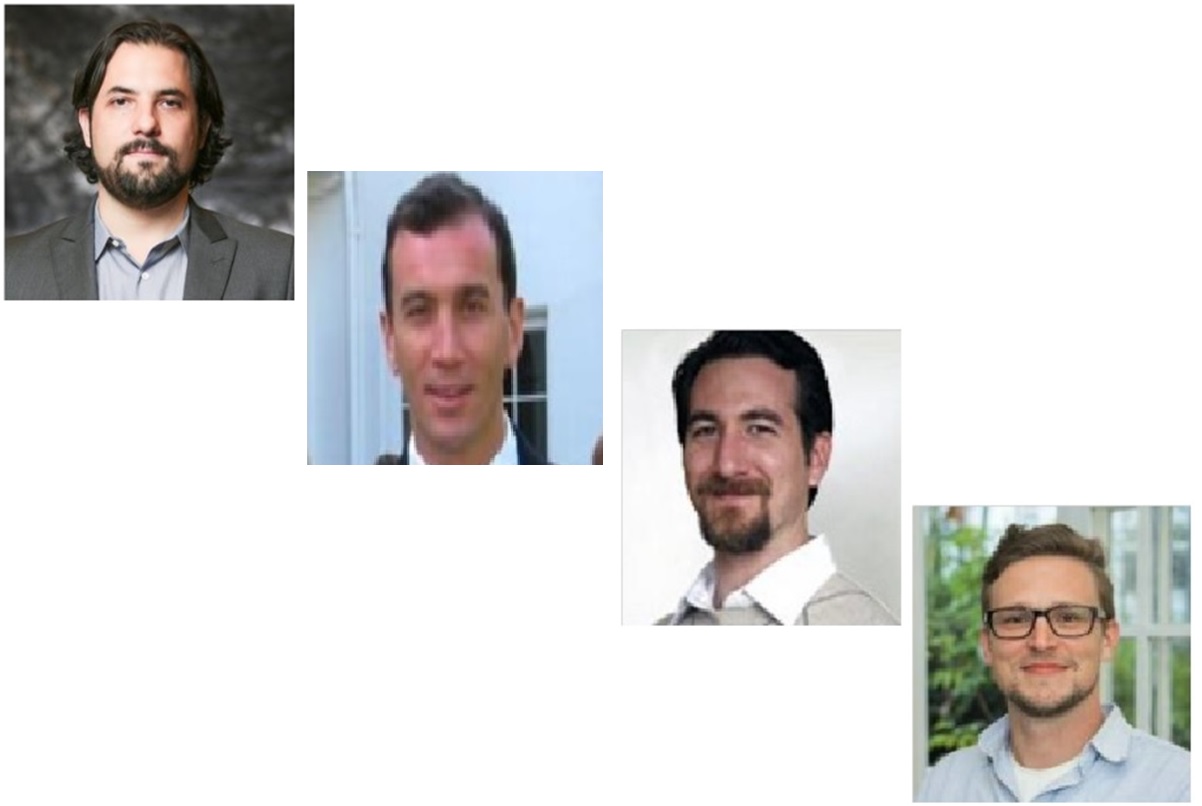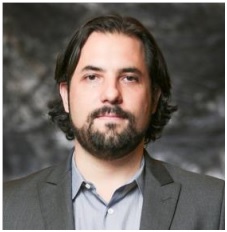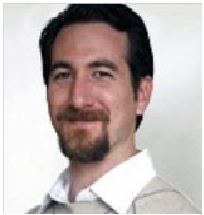Debates and discussions on relevant and current topics in the areas of Medicinal Chemistry, Biodiversity and Drug Planning
An initiative of the Laboratory of Medicinal and Computational Chemistry (LQMC) and the Center for Research and Innovation in Biodiversity and Drugs (CIBFar-Cepid / FAPESP), São Carlos Institute of Physics, USP
24/11
Institute of Physics of São Carlos (IFSC-USP) – Campus 2 – Room 201 – 15:00 h
Prof. Faruck Morcos
Department of Biological Sciences
Center for Systems Biology
University of Texas at Dallas
Residue Coevolution via Direct Coupling Analysis: from Protein Structure to Drug Design
Faruck Morcos is an assistant professor in the Department of Biological Sciences and Department of Bioengineering at the University of Texas at Dallas. He is also member of the Center for Systems Biology at UT Dallas. Before starting his lab at UT Dallas, he was a postdoctoral fellow at the Center for Theoretical Biological Physics, first at the University of California San Diego and later at Rice University. He received his Ph.D. in Computer Science (Computational Biology) from the University of Notre Dame. He also holds a M.S. in Electrical Engineering from the Technical University of Munich and a M.S. in Applied Mathematics from Notre Dame. He has a B.S. (Honors) in Electronics and Communications Engineering from ITESM Campus Monterrey. In 2010, he received the Research Excellence Award given by the Computer Science Department at the University of Notre Dame. In 2005, the Kellogg Institute for International Studies awarded him the Kellogg Fellowship for Graduate Studies at the University of Notre Dame and in 2002 he received the Werner von Siemens Excellence Award to pursue graduate studies in Germany. His research focuses on applications of information theory, statistical inference and physical modeling to study molecular structure, function and interactions. His current interests include molecular coevolution and the analysis of biological information to study disease.
01/12
Institute of Physics of São Carlos (IFSC-USP) – Campus 2 – Room 201 – 14:00 h
Dr. Francisco Varela
Senior Director of MarketPlace Intelligence and Strategic Support
Pfizer
Biopharmaceuticals: Myths vs. Facts
– What is a pharmaceutical (small molecule vs biologic), innovative, branded, generic product?
– Relative market sizes and evolution over time: market sizes by type, by geographies, by therapeutic area (by sales)
– Top biopharma players; some key products (noticeable breakthroughs rather than simply size)
– Increase in number of companies and products under development (in numbers and by therapeutic area) has been large
– However, only a small number is approved each year
– And the cost of developing a drug has increased significantly
– Industry R&D productivity has been in serious decline for years
– But opportunities for successful products still exist…
– What does it take to develop a product?
– Tunnel charts: show how long it takes to develop a drug (pre-competitive and competitive spaces)
– Approval rates and costs by phase (and by therapeutic area?)
– Product lifecycle
– Characterization of industry segments
– Forces of change: overview of strategic directions different industry segments/players are taking
– No incentives = no innovation
02/12
Institute of Physics of São Carlos (IFSC-USP) – Campus 2 – Room 201 – 14:00 h
Dr. Woody Sherman
Vice President
Applications Science
Schrodinger, Inc.
Advances in Ligand-based and Structure-based Drug Design Software
In recent years we have seen a rise in the use of computer-aided drug design tools in pharmaceutical companies as a result of advances in the underlying methods coupled with vast increases in computational resources. Here, we present an overview of the tools in the Schrödinger Suites, including ligand-based and structure-based approaches. We show that improvements in the underlying force field can improve results across a broad range of applications. We also show that molecular dynamics simulations can be used to accurately predict protein conformational states and protein-ligand binding free energies. Woody Sherman is Vice President of Applications Science at Schrödinger. He received his B.S. in Physical Chemistry from the University of California at Santa Barbara where he studied nonlinear optical properties of organic polymers using computational quantum mechanics. He completed his Ph.D. at MIT working in Professor Bruce Tidor’s lab where he examined the role of electrostatics in protein-ligand binding and implemented a novel method for optimizing ligand binding specificity across a panel of targets. While in graduate school he completed an internship at Biogen where he helped develop novel methods to enhance antibody affinity through electrostatic charge optimization, resulting in a publication and patent. At Schrödinger, he is involved in applications projects, product development, methods development, and scientific software support. He also works closely with customers on research projects and collaborations. Woody has published on a broad range of topics, including induced-fit docking, ensemble docking, protein design, small molecule optimization, cheminformatics, hybrid ligand/structure-based methods, free energy simulations, charge optimization, pharmacophore modeling, and more. He is a reviewer for top journals in computational chemistry and drug design and is on the Editorial Board of both Chemical Biology & Drug Design and Journal of Chemical Information and Modeling.
07/12
Institute of Physics of São Carlos (IFSC-USP) – Campus 2 – Room 201 – 14:00 h
Dr. Jadel Kratz
Coordinator
The Lead Optimization Latin America (LOLA)
Drugs for Neglected Diseases initiative (DNDi)
New mechanisms to accelerate drug discovery for Neglected Tropical Diseases (NTDs)
The Drugs for Neglected Diseases initiative (DNDi) is a patient-needs driven, not-for-profit research and development (R&D) organization that develops safe, effective, and affordable medicines for the millions of neglected patients across the world. DNDi focuses on developing new treatments for the most neglected patients suffering from diseases such as human African trypanosomiasis (sleeping sickness), leishmaniasis, Chagas disease, filariasis, paediatric HIV, mycetoma, and hepatitis C. The initiative’s primary objective is to deliver a total of 16 to 18 treatments by 2023 and to establish a strong R&D portfolio for these diseases. The R&D strategies developed by DNDi since its inception aim to address the immediate needs of patients by improving existing therapeutic options in the short term, whilst undertaking longer term research to identify and develop entirely new compounds which will be valuable adapted tools, particularly for elimination targets set by the World Health Organization. In 2013, DNDi began building a new consortium in Latin America (LOLA), providing support and mentoring for young scientists in the region. The consortia conduct hit-to-lead and lead optimization activities for visceral leishmaniasis and Chagas disease via a decentralized virtual model, and the talk focus will be the innovative R&D model and the efforts aiming at strengthening research capacities in the region. Jadel Kratz joined DNDi in June 2016 as Lead Optimization Latin America Coordinator focused in drug discovery projects in the region. He supports both the global and local R&D teams, and promotes the expansion of a regional consortia of scientific partners. Prior to joining DNDi, Dr. Kratz participated and coordinated academic research projects across various areas. Recently, he worked as R&D Coordinator at Cristália, a Brazilian-based pharmaceutical company. Dr Kratz is a pharmacist, and earned his PhD in Pharmaceutical Sciences (2011) at the Universidade Federal de Santa Catarina, Florianópolis, Brazil, with a visiting researcher period at the Uppsala University, Sweden. He completed postdoctoral fellowships at the University of Innsbruck and the University of Vienna, Austria.
ACHIEVEMENT:









